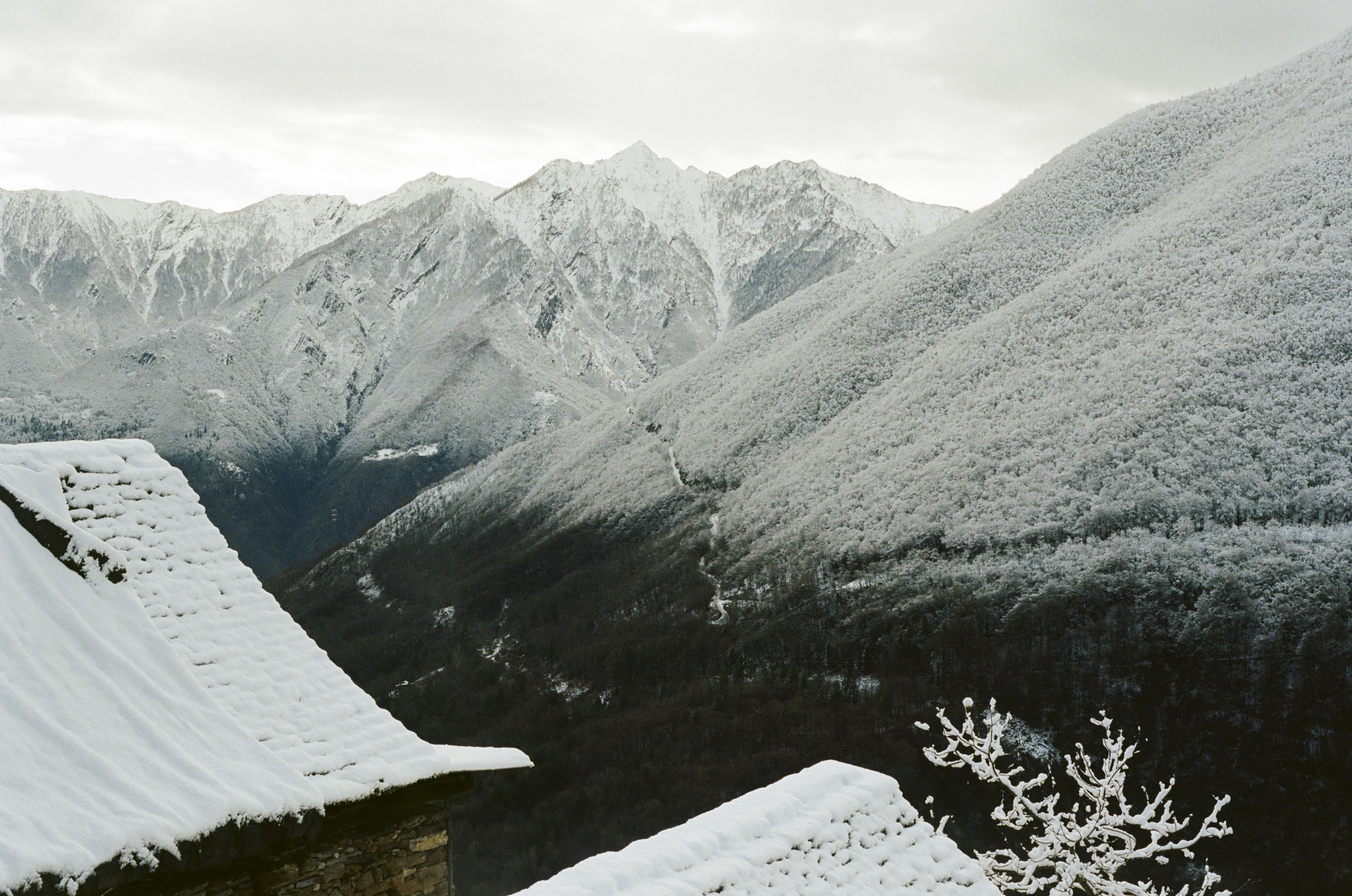Un nucleo familiare vive senza elettricità in una remota valle delle Alpi piemontesi. Oltre le montagne, nella Francia del Sud, è in corso l’esperimento di ITER (International Thermonuclear Experimental Reactor), immenso cantiere con l’obiettivo di riprodurre l’energia solare sulla Terra attraverso la fusione atomica. Un incendio notturno porta la famiglia verso una radicale svolta per realizzare il proprio sogno proibito: raggiungere il Canada, dove fondare una comunità energeticamente autonoma. In parallelo, 18 magneti vengono creati in anonime fabbriche sulla costa italiana, pronti a partire su navi cargo con destinazione Marsiglia, dove i mastodontici manufatti vengono assemblati nelle interiora di ITER. Compito dei magneti, invasi dal plasma a centinaia di milioni di gradi, è sopperire al deterioramento delle risorse fossili e fornire potenza senza fine. Le forze umane e tecnologiche si sviluppano in un intreccio che svela la comune necessità di reperimento di energia.
Dopo due anni di ricerca sulle contraddizioni dell’antropocene, abbiamo iniziato a studiare la figura di Alexander von Humboldt, complice la passione e l’influenza geografica del Professor Franco Farinelli. Da qui abbiamo iniziato a scrivere un soggetto, che abbiamo presentato al bando di sviluppo nel giugno del 2020. In questo soggetto si parlava di una famiglia che vive nelle Alpi in forme autonome. Da qui abbiamo iniziato a viaggiare nel paesaggio atomico europeo. ITER ci è apparso come il più imponente tentativo di risoluzione della questione energetica. Nell’autunno del 2020 abbiamo letteralmente “scoperto” il nucleo familiare dei Keyenburg, con i quali abbiamo iniziato un complesso percorso di avvicinamento. Terra Incognita, nelle sue dimensioni ispirate ai tre capisaldi del Kosmos humboldtiano, prende forma, ponendosi come opera internazionale di sperimentazione linguistica che racconta due vie radicali che tentano il superamento della crisi energetica.
Soggetto
Enrico Masi, Stefano Migliore
Sceneggiatura
Enrico Masi, Stefano Migliore. Co-sceneggiatura per la parte K. Gerd Keyenburg
Fotografia
Stefano Croci; Tomas Rigoni (Assistente)
Montaggio
Benni Atria, Carlotta Guaraldo
Musica originale
Fabrizio Puglisi, Gerd Keyenburg
Suono
Jacopo Bonora, Alexandre Frigoult Rabehasaina
Altri credits
Alessandra Lancellotti, João Pedro Amorim, Maddie Gwinn (Assistenti alla regia); Davide Rabacchin (Produttore Creativo); Carla Soriano Rodriguez, Rosvita Dransfeld (Supporto alla produzione); Alessandra Lancellotti, Giula Carbonero (Ricerche d'archivio); Alessandro Lestino - Music Lab (Lavorazioni sonore); Fabrizio Nastasi (Lavorazioni visuali); Teresa Serafini (VFX designer); Karianne Fiorini, Gianmarco Torri (Curatori); Gerd Keyenburg (Consulente alla sceneggiatura); Prof. Barbara Curli, Prof. Pierre Fournier, Alessandro Bonito-Oliva, Prof. Franco Farinelli, Prof. Alberto Vanolo, Pascal Cesaro, Davide Giusti (Comitato scientifico); Giuseppe Petruzzellis, Chiara Andrich, Adrien Faucheux (Supervisione al montaggio); Erica Pierri, Enrico Carnuccio (Fotografi di scena); Charlotte Parente (Illustratrice); Laura Loriga, Margareth Kammerer, Achille Succi, Alberto Capelli Vincenzo Vasi, Gerd Keyenburg, Annegret Keyenburg, Hans Joseph Keyenburg, Franz Anton Keyenburg, Waldtraud Delphina Keyenburg, Friedrich Keyenburg, Sophia Keyenburg (Musicisti); Erika Gardumi - Rizoma (Ufficio Stampa); Rossana Ronconi (Responsabile distribuzione festival).
Interpreti
Famiglia Keyenburg, Serge Latouche, Laban Coblentz, Claire Coblentz, Irene Zammuto.
Direttore di produzione
Davide Rabacchin
Organizzatore generale
Alice Solinas
Produttore
Stefano Migliore, Loïs Rocque
Produzione
Caucaso, Rai Cinema, Les Alchimistes
con il sostegno di Film Commission Torino Piemonte -
Piemonte Doc Film Fund - sviluppo giugno 2020, produzione dicembre 2022; Emilia-Romagna Film Commission (sviluppo e produzione),
Region Sud (sviluppo e produzione), Rai Cinema, Arte - La Lucarne, Bip tv, MIC, Centre National de la Cinématographie, CNR, Università di Torino, Alma Mater Studiorum
Distribuzione
Michaela Cajkova - Filmotor
Assistente alla regia
Alessandra Lancellotti, Maddie Gwinn, Joao Pedro Amorim
Assistente di produzione
Tecla Chiomio
Premi e festival
Eurodoc 2021, Hot Docs Forum 2023, Cannes Docs 2023
